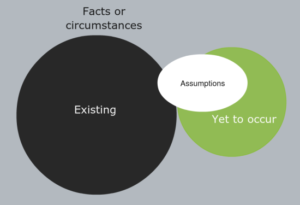Commissioner pushed too far to rule on private ruling – Hacon
Efforts by a $35 million pastoral dynasty to get tax certainty over their plans to restructure its farming holdings have come to an end with the Full Federal Court upholding the Commissioner of Taxation’s appeal and allowing the Commissioner to decline to rule on the applicants’ private ruling application.
Must the Commissioner rule on anything?
In theory, with enough information, the Commissioner can provide any private ruling on the way in which the Commissioner considers a tax law applies or would apply to any set of current or future facts and circumstances to a private ruling applicant. Does this afford scope for a determined taxpayer to base an extravagant application for a private ruling on a favourable but not necessarily realistic matrix of circumstances, which are yet to occur, particularly in an anti-avoidance context? Is this matrix really “information” which the private ruling must reflect?
Under the private ruling regime in Schedule 1 of the Taxation Administration Act 1953 (“Sch 1 TAA”) there are two competing limitations on the issue of private rulings:
- If the Commissioner finds that further information is needed to make a private ruling then the Commissioner must request the applicant for that information – the Commissioner can only decline to rule if the applicant does not provide the information requested within a reasonable time: section 357-105 of Sch 1 TAA.
- If correctness of a private ruling depends on an assumptions about a future event or other matter the Commissioner may either decline to rule or make assumptions that the Commissioner considers most appropriate: section 357-110 of Sch 1 TAA.
Commissioner of Taxation v Hacon Pty. Ltd.
In Commissioner of Taxation v Hacon Pty. Ltd. [2017] FCAFC 181 the applicants sought a private ruling over whether the general anti-avoidance provisions in Part IVA of the Income Tax Assessment Act 1936 would apply to a proposed demerger of assets in their farming group which included a routing of the assets, by way of dividends on redeemable preference shares, to a new series of trusts.
The applicants asserted that the matters on which the Commissioner declined to rule, which were expressly listed as assumptions about future events, could have been satiated by information which the Commissioner could and should have sought from the applicants as required by section 357-105. The applicants successfully contended this at first instance in the Federal Court. However the Full Federal Court on appeal by the Commissioner, comprising Robertson, Pagone and Derrington JJ., took a different view. The Court, at paragraph 8 of the joint judgment, observed that:
The word “information” is an ordinary English word apt to cover a large range of facts and circumstances including events yet to occur and assumptions about future events.
and found that the matters set out in the Commissioner’s letter, although satiable by information, did indeed require assumptions about future events or other matters so that declining to rule, without seeking explanation by way of information from the applicant, was an option available to the Commissioner under section 357-110.
Assumptions give scope to the Commissioner to opt out
It follows from the decision of the Full Federal Court in Commissioner of Taxation v Hacon Pty. Ltd. that, if the Commissioner needs to make assumptions about future events in order to rule in a private ruling application, the Commissioner can opt not to rule rather than being obliged to make assumptions which are not appropriate in the Commissioner’s estimation. That view can be apposite for future events where the information an applicant provides about them may not be convincing.


No comments yet.